(LĐ online) - These days, 78 years ago, facing the fate of the nation, with the aspiration and will to protect the independence and freedom of the Fatherland, on December 19, 1946, President Ho Chi Minh issued a call for national resistance. That was a call to the country, calling on the entire Party, the entire people and the entire army to stand up together, conduct the resistance war against the invading French colonialists, and regain independence and freedom for the Fatherland.
In August 1945, our people rose up to seize power and declared the establishment of the Democratic Republic of Vietnam. On September 23, 1945, the French colonialists returned to occupy Saigon, initiating a new invasion of our country. With the desire for peace and the tradition of respecting peace and friendship, the Vietnamese people under the leadership of the Party and President Ho Chi Minh showed goodwill, used flexible diplomatic strategies, and made many concessions to the French colonialists to maintain independence and avoid war.
On March 6, 1946, we signed a “Preliminary Agreement” with France, according to which France ceased fire in the South, French troops were allowed to enter the North and Central regions; France recognized Vietnam as a “free nation” within the French Union. But they did not implement the Agreement, not only did they not cease fire but also established a puppet government in the South, which they called “the autonomous country of Cochinchina”; at the same time, they occupied the Southwest Central region in an attempt to establish the “Western country”. In the North, they opened fire, attacked and oppressed our people in Lai Chau, Son La, and sought to establish the so-called “Thai country”. Similarly, they created an excuse to occupy Lang Son, plotting to establish the “Nung country”; occupied the coastal region from Mong Cai to Hai Phong , establishing a “Federal Region”. Even more sinister, they plotted to establish the Indochina Federation (including the Southern, South Central, and Central Highlands regions of Vietnam and Laos, Cambodia)… Their ambition was to divide our country to rule.
On September 14, 1946, we continued to sign a "Provisional Agreement" with France. France agreed to cease fire and respect freedom and democracy in the South; and we recognized France's economic and cultural interests in Vietnam. To implement this "Provisional Agreement", we handed over the Pasteur Court in Hanoi and ceased fire in the South. On the contrary, France blatantly used the army to relentlessly hunt down patriots in the South, set up a apparatus to control our people in all the villages (like a puppet government), that is, the "Ban hoi te". At the same time, they blockaded Hai Phong Port and embezzled our tax revenue, causing us further financial hardship, which was already difficult in the early days of independence.
On November 20, 1946, they actively provoked us to prevent us from collecting taxes, shooting our customs officers and police while they were on duty. As a last resort, our army fought back, taking advantage of this excuse, the French army immediately occupied Hai Phong and Lang Son, then they poured thousands of more troops into Da Nang. Thus, the "Preliminary Agreement" (March 6, 1946) and the "Provisional Agreement" (September 14, 1946) were completely broken by the French side. The French army used force to provoke in all three regions of the North, Central and South.
The tense situation reached its peak when on December 17, 1946, the French army used cannons, grenades, machine guns, etc. to attack and massacre civilians in Yen Ninh neighborhood (Hanoi); on December 18, 1946, they occupied the headquarters of the Ministry of Finance and the Ministry of Transport and Public Works, issued an "ultimatum" demanding that our Government disarm the self-defense forces, threatened to occupy the Hanoi Police Department and take control of the security of the entire city. Notably, on the morning of December 19, 1946, they sent another "ultimatum" reiterating their demand that we disarm the armed forces and remove obstacles on the streets of the capital. They set a condition: if within 24 hours (that is, only on December 19 and 20, 1946) we did not comply, they would take action.
Faced with the atmosphere of war approaching, President Ho Chi Minh remained patient to save peace. He sent to the French Republic Commissioner in Hanoi, J. Saintony, a proposal to meet to discuss and find solutions to improve the situation, but J. Saintony refused by replying that they had not met on December 19, 1946! The Party Central Committee stated: "The French colonialists cut off all negotiation channels and deliberately waged an aggressive war against our country." Increasingly aggressive and encroaching, France opened fire, causing bloodshed in the heart of Hanoi, the Vietnam-France conflict spread throughout Vietnam!
Faced with the revolutionary situation of an "inevitable" war and no other choice, on December 18 and 19, 1946, the Central Party Standing Committee held a conference in Van Phuc (Ha Dong), making the historic decision to launch a nationwide resistance war. On the night of December 19, 1946, President Ho Chi Minh, on behalf of the Party Central Committee and the Government, issued a call for national resistance: “Compatriots nationwide! We want peace, we must make concessions. But the more concessions we make, the more the French colonialists encroach, because they are determined to take over our country again! No! We would rather sacrifice everything than lose our country, we will never be slaves. Compatriots! We must stand up! Men, women, old and young, regardless of religion, party, or ethnicity. Anyone who is Vietnamese must stand up to fight the French colonialists to save the Fatherland. Those who have guns will use guns. Those who have swords will use swords, those who do not have swords will use hoes, shovels, and sticks. Everyone must strive to fight the French colonialists to save the country. Comrades, soldiers, militiamen, and self-defense forces! The time to save the country has come. We must sacrifice to the last drop of blood to preserve the country. Even though we have to endure hardships in the resistance war, With a resolute determination to sacrifice, victory will surely be ours! Long live an independent and unified Vietnam! Long live the victory of the resistance!” [Ho Chi Minh Complete Works, Volume 4, National Political Publishing House, Hanoi, 2011, p.534].
The call for national resistance, though brief, is an important document of a general nature, containing the basic viewpoints on the ideology, the path of people's war, and the art of promoting the strength of the entire people of President Ho Chi Minh. The call has breathed into the hearts of every Vietnamese person the spirit of solidarity, steadfastness and wholeheartedness to stand up against the invading French colonialists, to protect national independence. The call for national resistance not only has great historical value, calling on the entire people to participate in the resistance, contributing to defeating the invading French colonialists, creating a Dien Bien Phu "famous in five continents, shaking the earth", but also is the basis for our Party to build the combined strength of national defense, especially the art of arousing and promoting the strength of the entire people, contributing to building and firmly protecting the socialist Fatherland of Vietnam in the current period.
President Ho Chi Minh's call for national resistance on December 19, 1946 affirmed the determination and just nature of the great resistance war that our people waged. It was a call for the entire people to unite to protect the independence and freedom of the Fatherland, to carry out a comprehensive, long-term, self-reliant war, but victory inevitably belongs to justice, "certainly belongs to our people". That call crystallized the will, aspiration, and strength of the entire Vietnamese nation; it was a meeting between the people's hearts and the Party's will, written by President Ho Chi Minh in extremely brief, concise, easy-to-understand but extremely accurate words. It clearly summarized the developments in the country's situation in recent months, clearly outlined the nature of the invaders, helped our people clearly recognize the enemy; clearly identified the goals, mottos, methods, and forces of the resistance; and at the same time pointed out the source of strength and the eventual victory of our nation. That strength was forged not only by the tradition of patriotism and solidarity of the Vietnamese people over thousands of years of history, but also by the utmost patience of each citizen, of the Party, of Uncle Ho in the process of contacting and negotiating with the invaders, having to make concessions on one thing after another just to preserve the most sacred and noble thing, to preserve the basic rights of the people, of our nation, which is "independence and freedom". As comrade Truong Chinh, General Secretary of the Party at that time, wrote in his work "The Resistance Will Definitely Win": "Patience has nurtured in our nation so much resentment, exploding into a force that reaches the heavens!" [Department of Ideology and Culture - General Department of Politics, Commemorating the 50th Anniversary of the National Resistance Day (December 19, 1946 - December 19, 1996), p.15].
Our current generation did not have to endure the slavery, misery and humiliation of the people who lost their country at that time; did not witness the hardships, fighting and sacrifices of our ancestors' generation with all kinds of deprivation in the early days of independence; but through witnesses, books, newspapers, and historical documents passed down, we still fully and truly feel the atmosphere of the heroic days when the army and people of the whole country put the interests of the Fatherland and the people above all and first, devoting themselves to fighting for the great cause, "Determined to die for the Fatherland, determined to live".
The victory of the resistance war affirmed the position of Vietnam, a civilized and heroic nation, resilient and indomitable in the fight against oppression, injustice, and invasion, determined to fight for justice, taking the lead in the struggle to liberate colonial nations from colonialism and imperialism; that nation deserves freedom, deserves independence as Uncle Ho once declared.
Today, after 78 years of looking back, the Call for National Resistance together with the glorious victory of the Vietnamese revolution has given us many profound lessons: It is a lesson about consistency, persistent implementation of the strategic motto "using the unchanging to respond to all changes", flexibility and adaptability in responding to situations, in relations with the opponent, even making concessions at certain levels on the basis of ensuring that the supreme interests of the nation and people cannot (and will never) change; a lesson about firmly grasping the situation, doing a good job of strategic forecasting, proactively and urgently preparing all aspects for all situations to protect the Fatherland. A lesson about promoting the will to self-reliance, patriotism, national spirit, great solidarity, combining national strength with the strength of the times; Lessons on organizing and preparing for resistance, coordinating activities on battlefields and strategic areas, fighting the enemy with a people's war strategy, holding back the enemy, stretching the enemy out to fight, not giving them the opportunity to concentrate, limiting their military and firepower to the maximum; lessons on seizing and choosing the right time and moment to launch the resistance, putting the country into a state of war with the highest level of initiative and readiness, gaining and maintaining the initiative throughout the war; lessons on combining combat with enemy propaganda work, the policy of attacking people's hearts ("attacking the heart and attacking the heart"), promoting the combined strength of domestic and international forces (Vietnamese expatriates in other countries, intellectuals around the world, and the French people and French soldiers)...
President Ho Chi Minh's "Call for Resistance to Save the Country" has become a slogan for action, a motto for every Vietnamese citizen from young to old, not only during that historical moment but also over time, leading our nation to defeat two great empires, France and the United States; at the same time, continuing to gain great victories of historical significance in the cause of national renewal, contributing to building and protecting the socialist country of Vietnam.
Years have passed, but the heroic echo of the Call for National Resistance remains forever, continuing to shine, spread, creating a great endogenous strength, motivating each officer and soldier of the Army to strive, promote heroic traditions, continue to establish outstanding achievements, and together with the whole people enter a new era - the era of the Vietnamese nation's rise.
Source: http://baolamdong.vn/chinh-tri/202412/78-nam-ngay-chu-tich-ho-chi-minh-ra-loi-keu-goi-toan-quoc-khang-chien-ccc1f7c/


![[Photo] The Government Standing Committee works with ministries and branches on the real estate market situation.](https://vphoto.vietnam.vn/thumb/1200x675/vietnam/resource/IMAGE/2025/5/24/e9b5bc2313d14c9499b8c9b83226adba)


![[Photo] Ho Chi Minh City holds funeral for former President Tran Duc Luong](https://vphoto.vietnam.vn/thumb/1200x675/vietnam/resource/IMAGE/2025/5/24/9c1858ebd3d04170b6cef2e6bcb2019e)


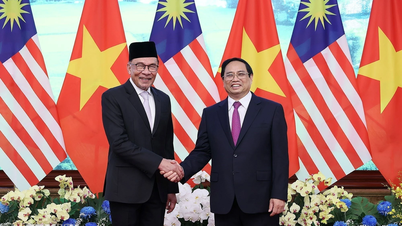

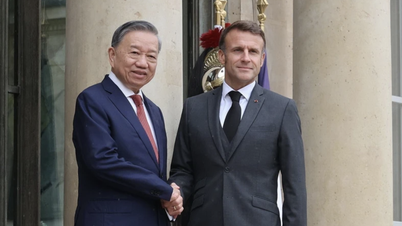
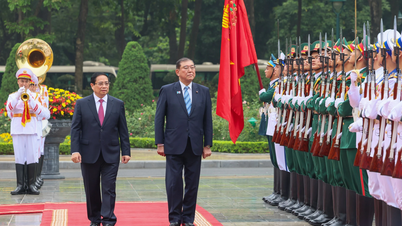
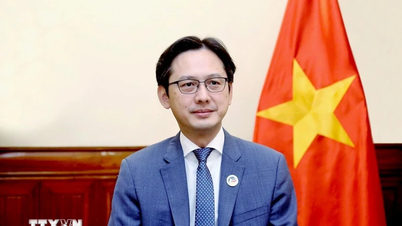
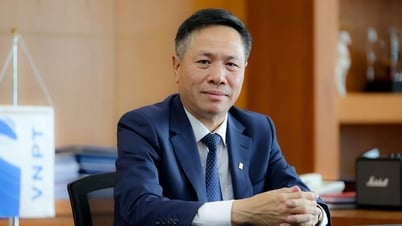



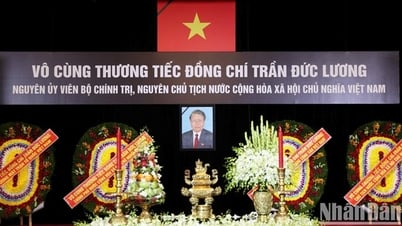
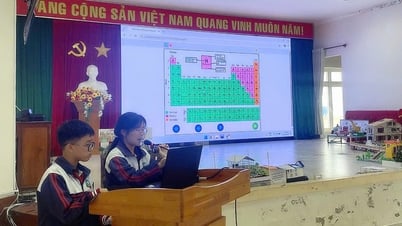

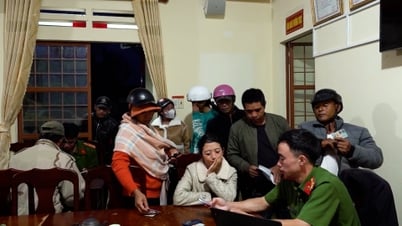
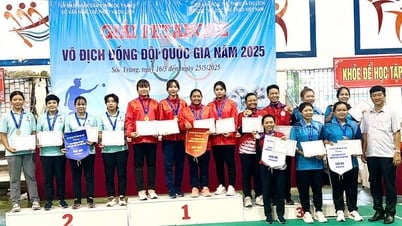
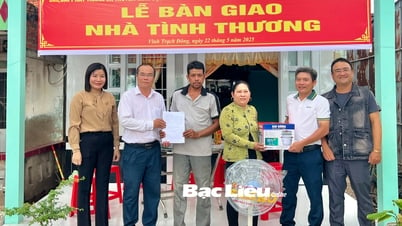







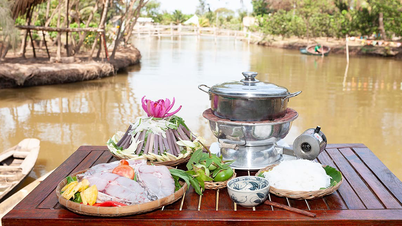
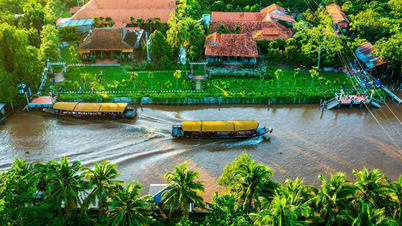
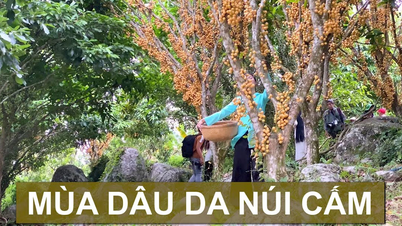
![[Photo] Party and State leaders visit former President Tran Duc Luong](https://vphoto.vietnam.vn/thumb/1200x675/vietnam/resource/IMAGE/2025/5/24/960db9b19102400e8df68d5a6caadcf6)

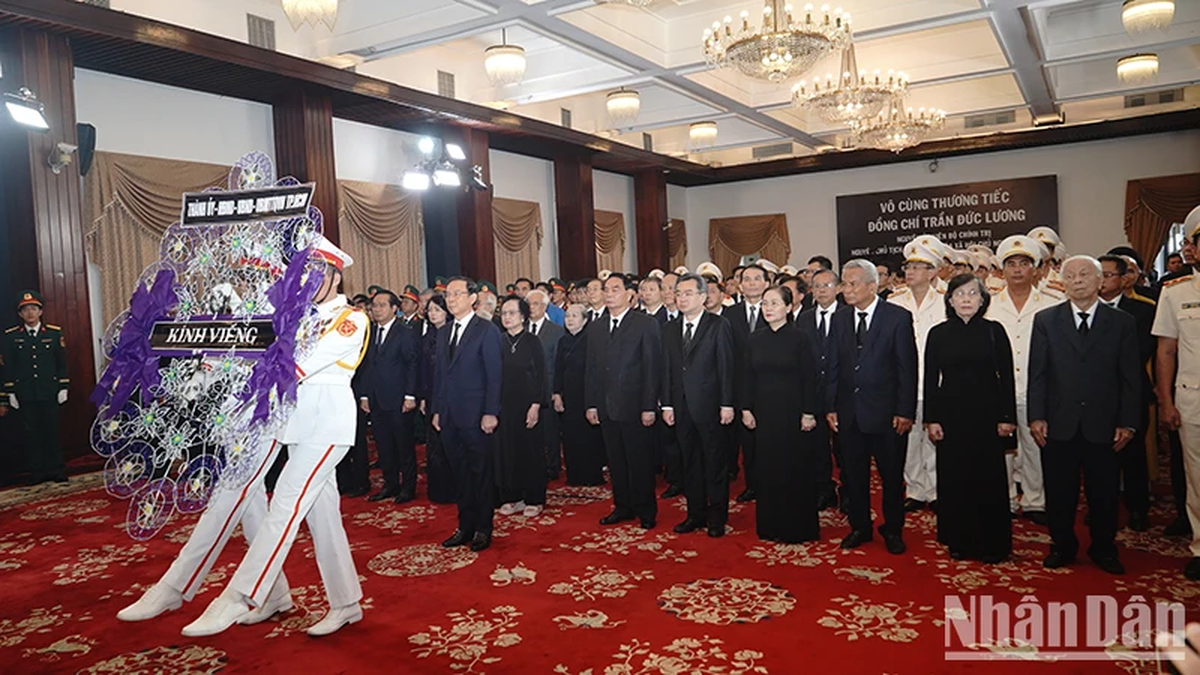
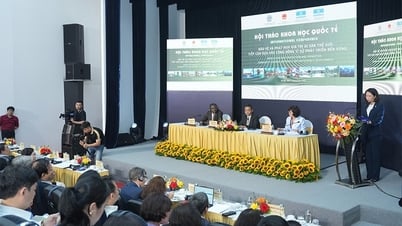



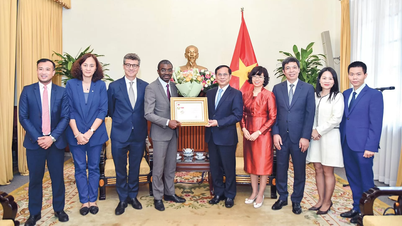







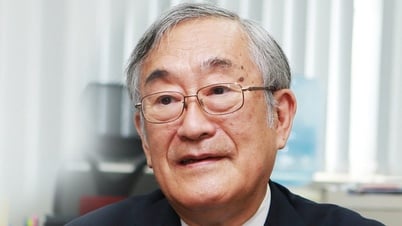

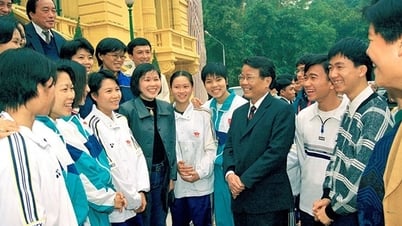

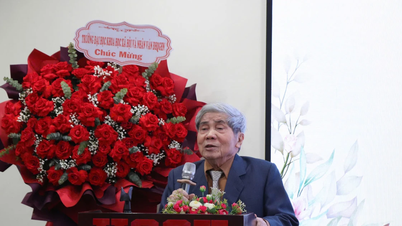










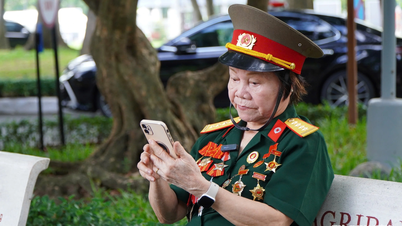
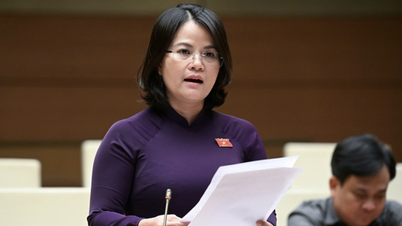
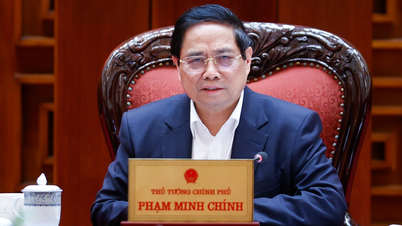
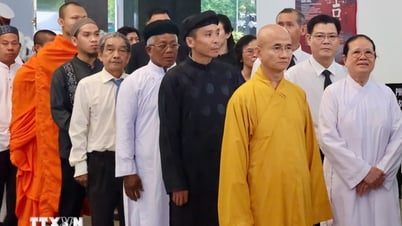
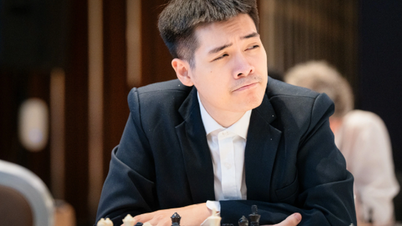







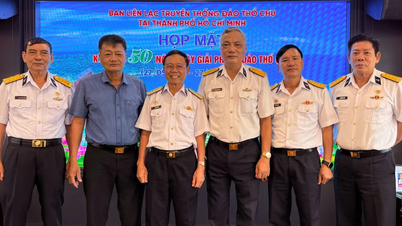



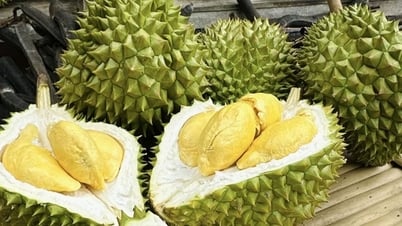


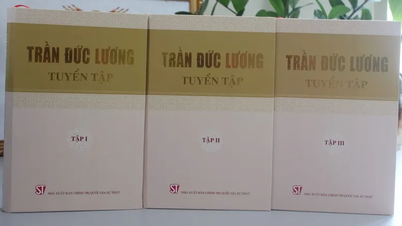
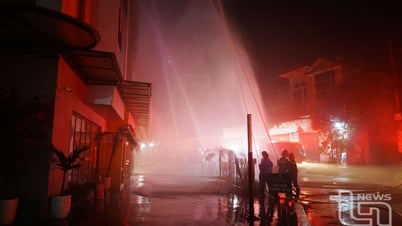











Comment (0)